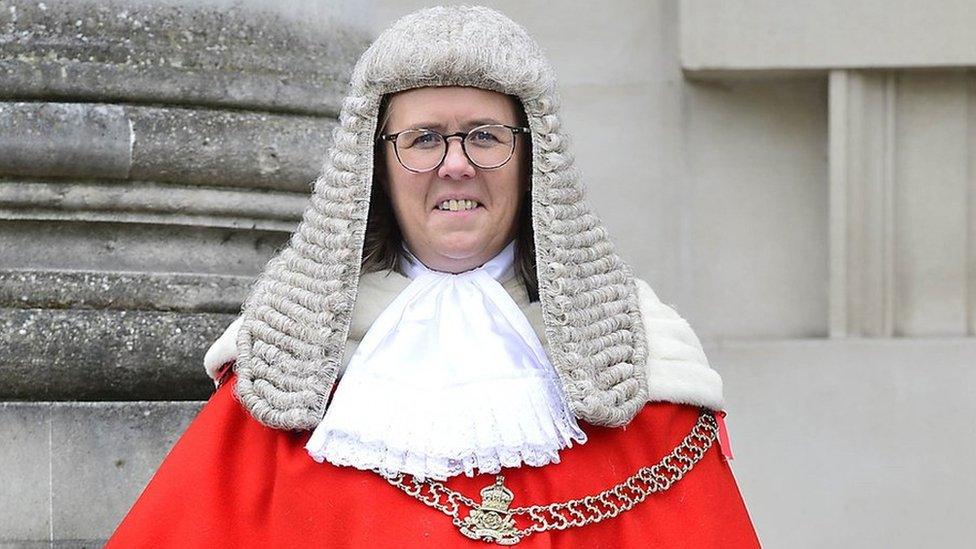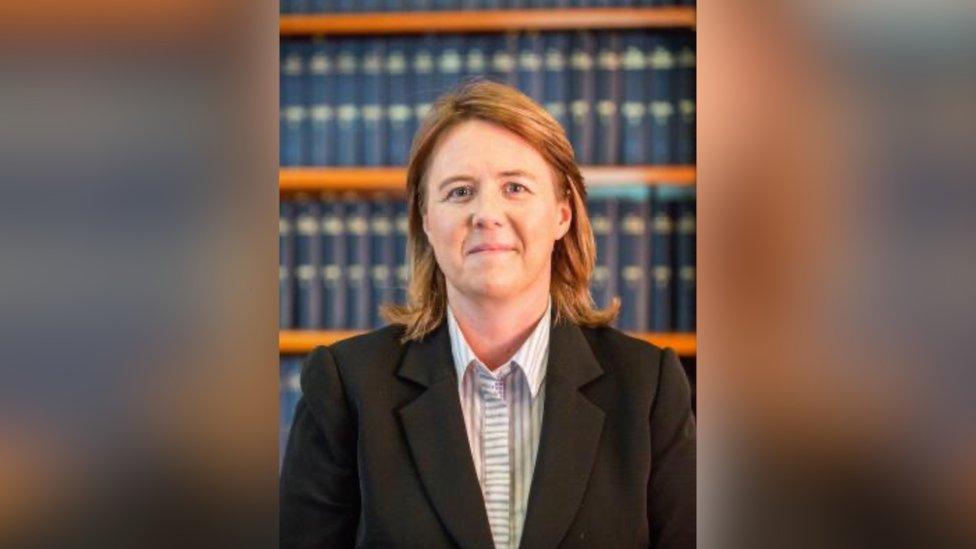First lady chief justice in NI history 'honoured' to be role model
- Published
Dame Siobhan says it is important the judiciary is open to people from all backgrounds
The new lady chief justice of Northern Ireland has said it is "an honour, privilege and responsibility" to be considered a role model.
Dame Siobhan Keegan said she wanted to see more women judges as well as those from ethnic backgrounds.
She is the first woman chief justice in Northern Ireland's 100-year history.
In an interview with BBC News NI, she said: "I do think it is important that young people see women in senior positions.
"I do think the wider community will see this as significant."
Three quarters of Northern Ireland's most senior judges are men.
Dame Siobhan succeeds Sir Declan Morgan at a time when the coronavirus pandemic has added to existing backlogs in the court system.
Victim support
Figures published earlier this year showed that more than 500 crown court trials are waiting to be heard.
Dame Siobhan said she wanted to avoid situations in which victims were traumatised by delays and could change their mind about giving evidence.

Dame Siobhan Keegan is the first woman chief justice in Northern Ireland's history
"It's the last thing I would want to see happening," she said.
"The justice system has become aware of these types of issues and supports victims."
She said there would be a continued emphasis on prioritising cases such as those involving sexual abuse.
Troubles legacy
In her previous position as president coroner, she oversaw the high-profile Ballymurphy inquest into the Army shootings of 10 people in west Belfast in 1971.
She did not want to be drawn on the government's legacy proposals, which would end all Troubles-era investigations and inquests.
"It is not for me to comment on proposals which are just that: proposals," she said.
"There may be issues for the courts to determine so I am not going to comment further."
But she added that inquests had been shown to provide people with information about the past that was important to them.
"We have to wait and see what happens," she said.
"The court's focus on legacy is only part of a much wider issue for Northern Ireland which is a societal issue, given how many people are victims of the Troubles.
"There is a bigger picture for us, for our society and we are all aware of that as people who live here."
Related topics
- Published2 September 2021
